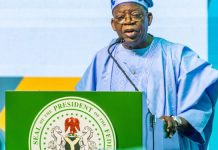…Accuses Fuel Marketers of Price Inflation
The Nigeria Labour Congress (NLC) has issued a December 1, 2024, deadline for state governments to implement the newly approved minimum wage of N70,000.
In a recent communique following its National Executive Council (NEC) meeting, the NLC announced its intention to initiate an indefinite strike in states that fail to comply with the new wage policy by the deadline.
President Bola Tinubu had approved the minimum wage increase from N30,000 to N70,000 in July 2024, aiming to improve the welfare of Nigerian workers amid economic hardships. While over 20 states have begun implementing the new wage, others remain delayed. In response, the NLC directed its state councils in non-compliant states to prepare for industrial action, emphasizing its commitment to ensuring fair treatment and improved livelihoods for all workers.
The NLC further condemned fuel marketers, alleging that the pump price of petrol is inflated well above the actual market value, adding to the economic burden on Nigerians. The NEC statement expressed dismay over what it described as “shenanigans” in petrol pricing, suggesting collusion within the industry to exploit citizens.
“There may be a gang-up against Nigerians by fat cats in the industry,” the NLC stated, referring to alleged cost padding and abnormal profit margins among fuel marketers. The union demanded immediate reform, calling on the government to bring domestic refineries in Port Harcourt, Warri, and Kaduna back on stream to mitigate the nation’s reliance on imported petrol and lower costs for consumers.
The NLC also announced the creation of a National Minimum Wage Implementation Committee, tasked with overseeing the rollout of the new wage policy, mobilizing workers, and educating citizens on their rights. “Nigerian workers demand justice, and justice they shall have,” the communique asserted.
As economic conditions tighten, the NLC’s demands highlight growing frustrations over policies perceived as “anti-people,” underscoring the union’s resolve to hold both government and industry leaders accountable for the welfare of Nigerians.













